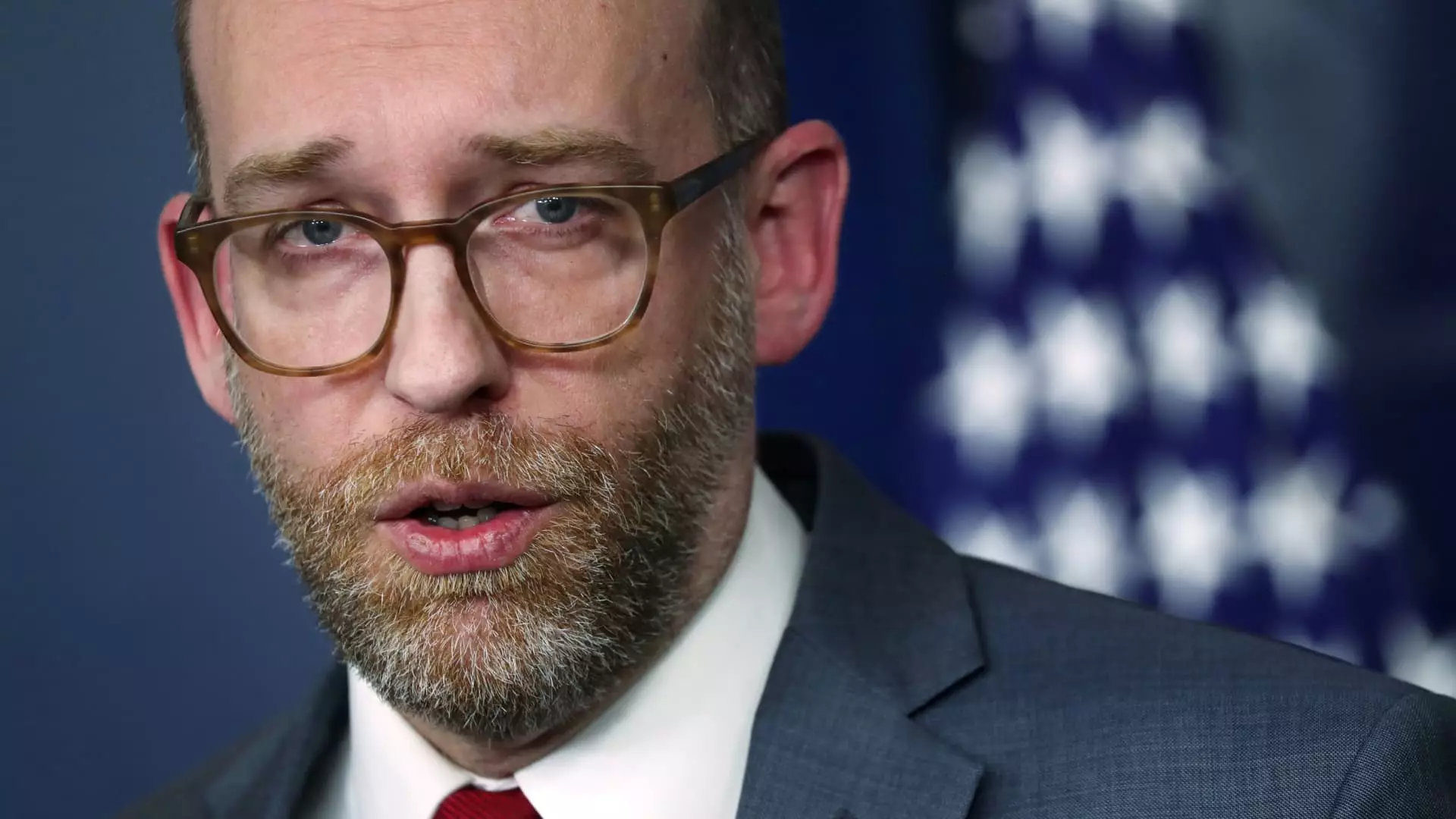The recent termination of several dozen employees at the Consumer Financial Protection Bureau (CFPB) has triggered significant concern regarding the agency’s future and the welfare of its remaining staff. Notably, this decision has occurred against the backdrop of the Trump administration’s concerted efforts to streamline federal staffing across various agencies, marking a critical juncture in the landscape of public service.
On Tuesday, termination notices were delivered to a number of employees, primarily spanning those who were still within their probationary period. Such periods typically serve as a trial phase for newly hired employees, where their performance and fit for the role are evaluated. The process for hiring federal employees includes a probationary phase lasting up to two years, yet the dismissals do not necessarily reflect their individual performance; rather, they might be seen as a casualty of a broader political maneuvering intended to reshape the federal workforce.
According to unnamed sources familiar with the situation, the recent firings were part of an extensive purge initiated by the Office of Personnel Management (OPM), which had solicited lists from federal agencies detailing recently hired employees, presumed to be more vulnerable to termination. This has incited anxiety among a wide array of federal entities, stretching from the Federal Bureau of Investigation to the Environmental Protection Agency, as employees ponder their job security in an increasingly unpredictable climate.
Stirring unrest within the CFPB, the involvement of Elon Musk’s Department of Government Efficiency has raised alarming questions about the future of the agency. Since acquiring access to the CFPB, operational activities across the bureau have been effectively paused. Even more troubling is the directive issued by acting CFPB director Russell Vought, instructing employees to cease any agency-related work, coupled with escalating calls from influential figures—including both Musk and Vought—for the CFPB’s dissolution.
Notably, the swift and unexpected nature of these dismissals has led to accusations of illegitimate procedure. Senior CFPB litigation counsel Johanna Hickman characterized the firings as not merely a workforce reduction, but rather as an “unlawfully-executed mass firing.” Having joined the bureau just a few months prior, Hickman voiced concerns regarding the abrupt change in operational dynamics and the potential lack of adherence to established federal guidelines governing the termination of probationary employees.
The abrupt nature of these terminations has also resulted in confusion, particularly as some of the dismissed employees had previously accepted federal buyout offers. Reports indicate that many of those receiving dismissal notices were presented with generic letters that lacked specific identifiers, further complicating the emotional and professional fallout of this mass termination.
The dismissals have struck hard at the CFPB’s enforcement division, which had been bolstered under former director Rohit Chopra. Chopra’s tenure was marked by a concerted effort to expand legal enforcement capabilities within the agency—an initiative that is now at risk of being undermined with these job losses. While the agency previously employed approximately 1,700 individuals, there remains a looming concern that ongoing instability will stymie future hiring and enforcement efforts.
The repercussions of these layoffs extend beyond the immediate ramifications for those terminated. With the CFPB serving as a pivotal agency fundamentally tasked with protecting consumers and ensuring fair market practices, the toll taken on its workforce could have cascading effects on consumer protections at large.
As remaining staff grapple with the uncertainty surrounding their employment status and the agency’s future, calls for legal challenges gain momentum. They advocate for pushing back against what many perceive to be an aggressive tactic aimed at dismantling a body integral to consumer rights and regulatory enforcement.
The developments at the CFPB encapsulate not only a shifting paradigm within federal employment but also underscore a broader discourse regarding the value of government oversight and consumer protection in a turbulent political climate. As the agency faces an uncertain future, questions remain about the sustainability of its mission and the integrity of its workforce—pivotal elements in safeguarding the interests of American consumers.


Leave a Reply